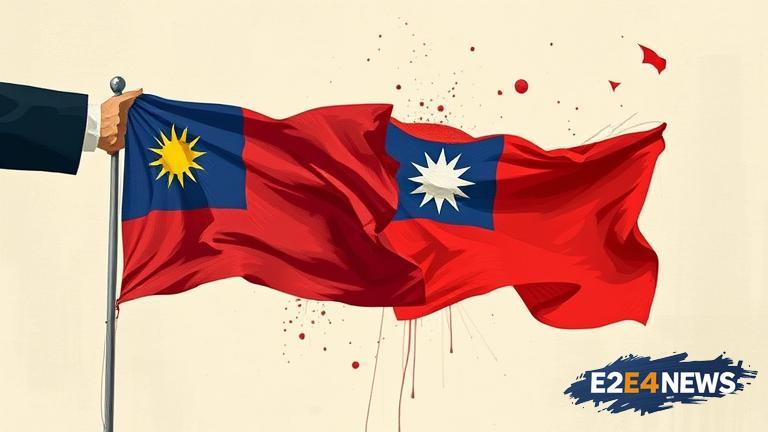The Chinese government has slammed Taiwan’s ruling party, the Democratic Progressive Party (DPP), for alleged political manipulation. This comes after a recall vote in which several opposition lawmakers survived. The vote was seen as a test of the DPP’s popularity and a potential indicator of the outcome of future elections. Beijing has long been critical of the DPP, which it views as separatist. The DPP has been a strong advocate for Taiwan’s independence, which China strongly opposes. The recall vote was held in response to allegations of corruption and incompetence against the opposition lawmakers. However, the vote ultimately failed to unseat the lawmakers, which Beijing sees as a result of the DPP’s manipulation. China has accused the DPP of using underhanded tactics to influence the outcome of the vote. The DPP has denied these allegations, stating that the vote was free and fair. The recall vote has highlighted the deep divisions within Taiwanese politics. The opposition party, the Kuomintang (KMT), has been critical of the DPP’s handling of the vote. The KMT has accused the DPP of attempting to suppress opposition voices. The DPP has responded by stating that it is committed to democracy and the rule of law. The recall vote has also sparked concerns about the future of Taiwan’s democracy. Some have expressed concerns that the DPP’s actions could undermine the integrity of the electoral process. Others have argued that the vote was a legitimate expression of the will of the people. The Chinese government has long been wary of Taiwan’s democratic system, which it views as a threat to its own authoritarian rule. Beijing has used a range of tactics to try to influence Taiwanese politics, including diplomatic pressure and economic coercion. The recall vote has also highlighted the complex relationship between Taiwan and China. The two sides have been governed separately since the end of the Chinese Civil War in 1949. However, China views Taiwan as a part of its territory and has threatened to use force to bring the island under its control. The international community has been watching the situation in Taiwan with interest. The United States, in particular, has been a strong supporter of Taiwan’s democracy. The US has provided Taiwan with military aid and has spoken out in support of its right to self-governance. The recall vote has also sparked concerns about the potential for conflict between Taiwan and China. Some have argued that the DPP’s actions could provoke a response from Beijing, which could have serious consequences for regional stability. Others have argued that the vote was a necessary step to ensure the integrity of Taiwan’s democracy. The situation in Taiwan remains complex and uncertain. The DPP has stated that it will continue to push for reforms and to promote Taiwan’s interests. The opposition party has vowed to continue to hold the DPP accountable for its actions. The international community will be watching the situation in Taiwan closely, as the island navigates its complex relationship with China.
